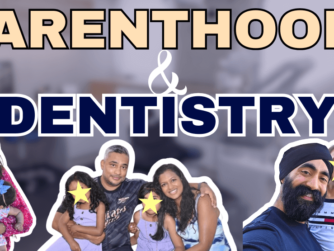Podcast: Play in new window | Download (Duration: 57:04 — 80.8MB)
Subscribe: RSS
If there is one piece of content I produce in my LIFE which I think MAY have a massive impact on your life – it might not get much bigger than this one right here!
I will put the video up shortly, but you can catch it on Facebook premiere tonight at 8pm on Protrusive Dental Podcast Facebook Page. Video:
Do your grades at dental school influence your success as a Dentist?
Is your IQ important?
I would be surprised if any of you answered ‘yes’ for these questions.
So what do Richard Porter and I believe is the most important predictor of success in your life, relationships and work?
Two words: Emotional Intelligence.
Find a quiet place, close your eyes* and take a dive in to the world of Emotional Intelligence as applied to Dentistry:
*not while driving!!
We discuss:
- How important is luck in your life and career
- What is emotional intelligence and what tangible examples can Richard provide relevant to Dentistry?
- Why does high emotional intelligence mean more ‘successful’ and even higher earning Dentists?
- Are you born with Emotional Intelligence, or can you improve your EQ?
- Why is Emotional Intelligence important for Dentists, Dental Therapists and the entire dental team?
- How can you find out your level of EI? Richard suggested The Big 5 Ocean Assessment – such as understandmyself.com
Resources as promised:
Harvard Happiness Study
Dunedin study
Learn with Richard Porter and Aspire
If you liked this episode, you will love 12 Rules for Dentistry








[…] real-world themes. And actually, it also involves a bit of luck and something that we touched on in Episode 34 with Richard Porter on emotional intelligence was the element of luck in your career trajectory is actually very […]
[…] If you enjoyed this episode, you will also like How to Win at Life and Succeed in Dentistry. […]
[…] you enjoyed this episode, you will like the episode on Emotional Intelligence with Richard Porter – check it […]
[…] If you enjoyed this episode, you will enjoy How to Win at Life and Succeed in Dentistry! […]
[…] If you liked this episode, you might also enjoy How to Win at Life and Succeed in Dentistry – Emotional Intelligence […]
[…] If you loved this episode, you will like How to Win at Life and Succeed in Dentistry – Emotional Intelligence […]
[…] If you liked this episode, you will love How to Win at Life and Succeed in Dentistry – Emotional Intelligence […]
[…] If you liked this episode, you will love How to Win at Life and Succeed in Dentistry – Emotional Intelligence […]